
What is eco-cleaning?
What is eco-cleaning? Ecology is increasingly entering the various spheres of life, including household cleaning. Perhaps you have heard of the term eco-cleaning before.

Unfortunately, no one has yet found a means to remove the dust for good. And considering the challenges we actually face in doing so, it's unlikely to happen. House dust is simply a mixture of various organic and inorganic particles that swirl in the air and settle on various surfaces over time. It contains elements of our epidermis or hair, as well as animal hair. It also includes fragments of fibers and substances that have entered the home from outside: powdered sand grains, soil or pollen. Fungal germs and bacteria can also be found here, providing a breeding ground for disease-causing microorganisms. The composition of dust is not uniform. If we look closely at two samples from different households, they will certainly differ in this.
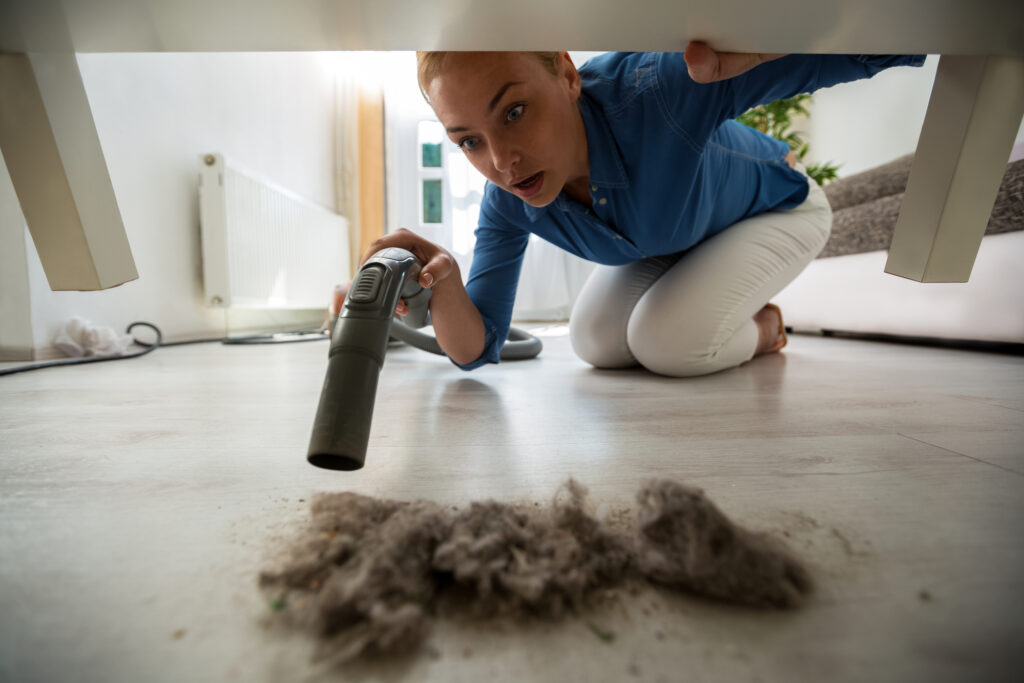
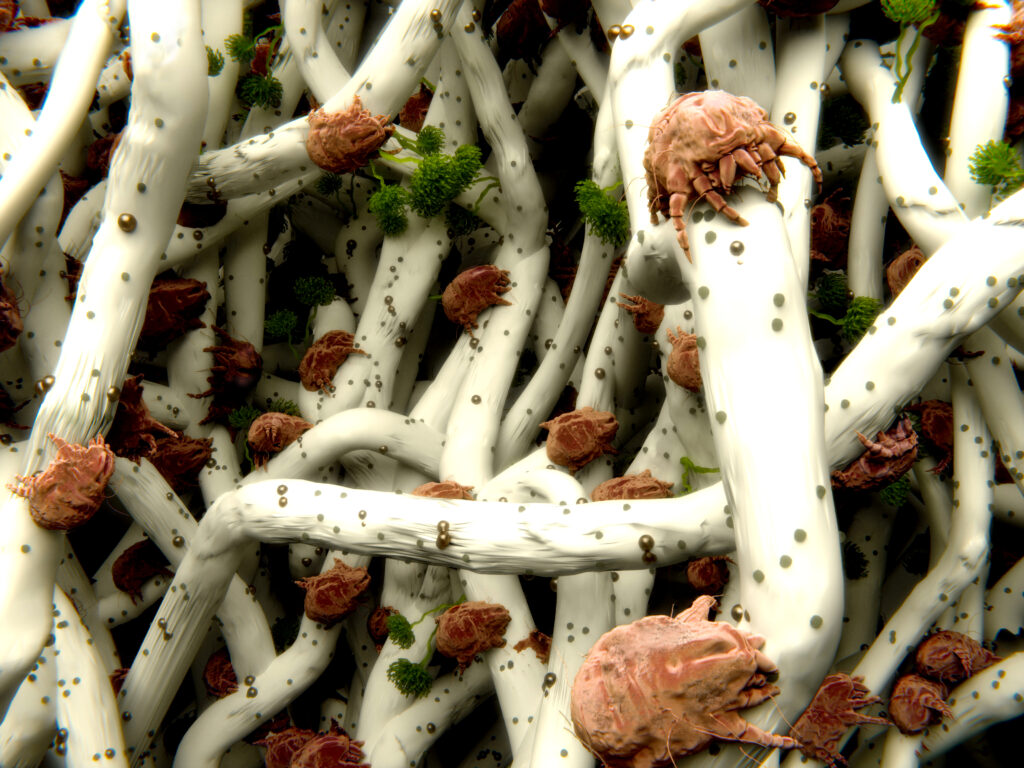
A layer of dust is an unsightly phenomenon that usually prompts us to do something about it. However, the presence of such particles heralds an even bigger problem. It is the fact that dust mites, microscopic arachnids, live in house dust. Their favorite places are dusty carpets and rugs, beds, mattresses, curtains and upholstered furniture. They can also be found in plush toys that have not been used for a long time. The best known example of such an organism is the skin fly (Dermatophagoides pteronyssinus), which feeds on bacteria and plant debris, but also on human epidermis or dandruff.
Even if we do not notice these small creatures in everyday life, they still affect our comfort of life. Airborne dust easily enters the respiratory tract. In the process, we also breathe in dead dust mites and the droppings of these microscopic arachnids, which can contain allergens. Do you occasionally sneeze when you look in the attic or open an old closet after a long time? This could be a sign of an allergic reaction, the cause of which is due to the presence of mites.
In addition, it should be remembered that dust usually contains several substances that can cause similar reactions. These include pollen and mold spores. People with animal allergies can suffer from dust containing hair without having direct contact with dogs or cats.

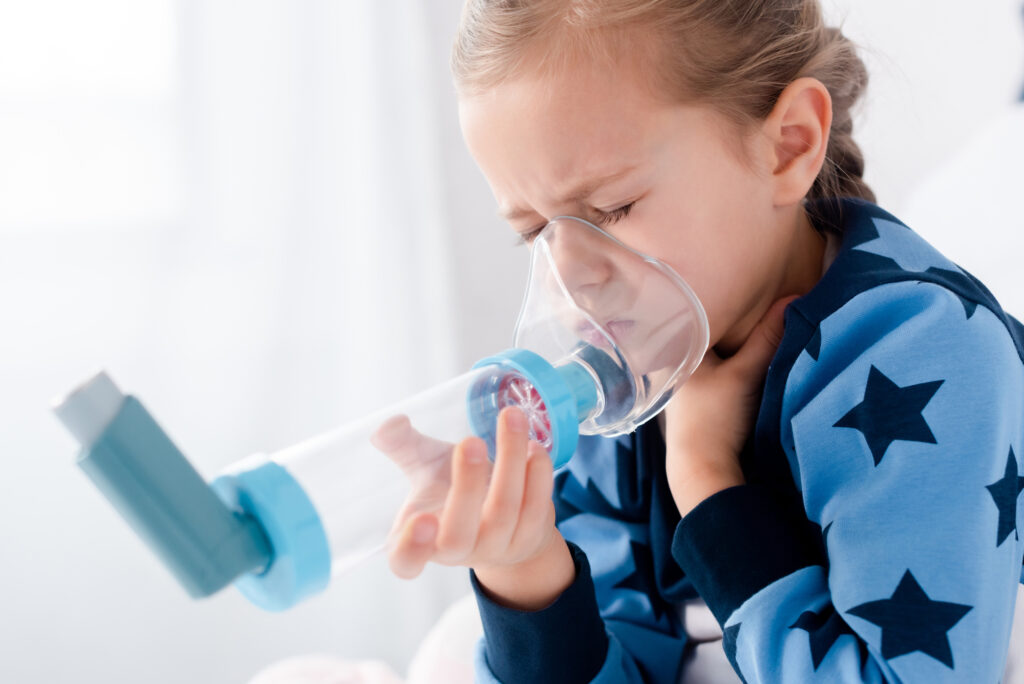
Sneezing is not the only discomfort caused by dust. Arachnids that live in dusty places or pollen can also cause an unpleasant dry cough, runny nose, itchy skin, shortness of breath, conjunctivitis, and headache and sinus pain in allergy sufferers.
Allergic symptoms are sometimes the precursor to a more serious condition, chronic bronchial asthma, which has no cure and causes irreversible changes in the bronchial tubes. Sometimes health problems occur in the digestive tract, and contact with dust in extreme cases leads to abdominal pain, diarrhea or vomiting.
Inhabitants of more polluted cities must reckon with the presence of chemical compounds in the dust that can have a long-term negative effect on the body. Their presence contributes to the development of dangerous diseases (e.g. of the lungs).
The catalog of potential risks is thus broad, and the consequences of being in such an environment vary widely. Much depends on the specific composition of the house dust and the immunity level of the body. While allergy sufferers often suffer from contact with these particles, people who are not affected hardly feel anything is wrong, if at all, or suffer only mild irritation of the respiratory tract.
Dust can not be completely removed from the environment, but there are a number of methods that can reduce the inconvenience. First, it is important to know that the reproduction of dust mites is favored by high temperatures. If we do not overheat the house, there will be less of them. Regular airing is a good habit. If we open the windows, we can get rid of the particles in the air. Dust often accumulates on carpets and rugs (especially for long haired people). In houses without such accessories, the problem is less acute. Dust also settles on jewelry and books, which are better kept behind glass.

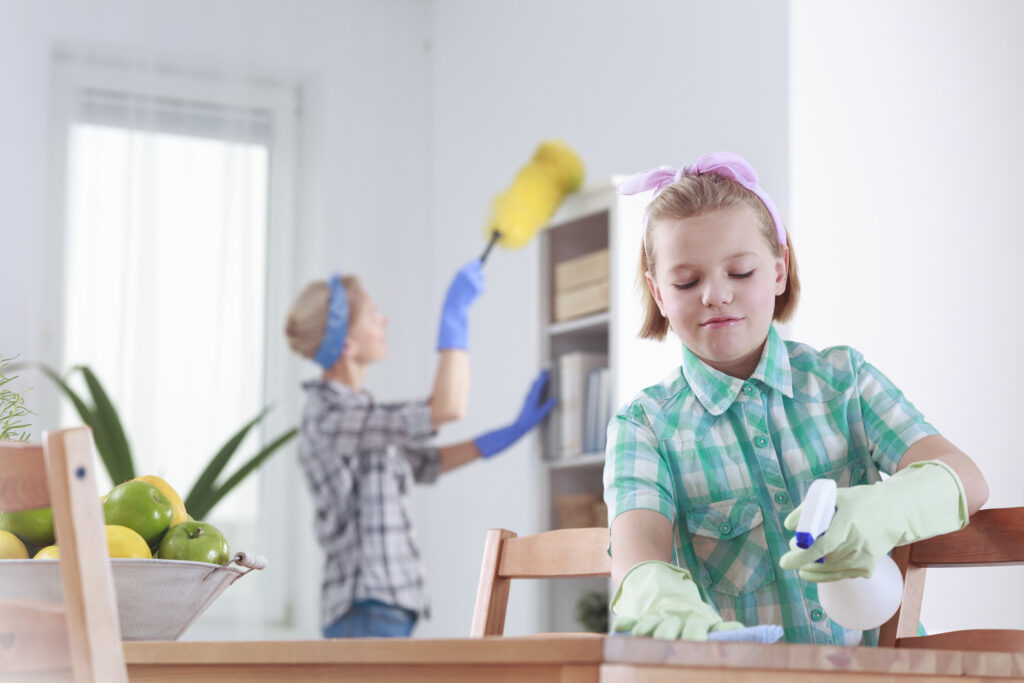
Even if you are not allergic to the dust components, you should keep in mind that your guests may tolerate such contact much less well. Therefore, in all circumstances, it is advisable to keep the environment as dust-free as possible. A thoroughly cleaned room is not only pleasant to be in. A clean environment is also a matter of health!!!
How to get rid of the dust? This is best done with a damp microfiber cloth.
The advantage of this material is its ability to attract dust particles. Since we are dealing with an intrusive opponent, the fight against dust requires regularity. The dust should be wiped at least once a week. From time to time should also think about more thorough cleaning: washing all the nooks and crannies and trinkets, washing the furniture covers, pillows and curtains.
Also, keep in mind that dust is also a danger for your child. Children of all ages like to accumulate numerous items in their rooms, but they are not always willing to clean them regularly. Toys (especially teddy bears) that haven't been used for a long time, vacation souvenirs, or books that haven't been used for a long time can accumulate a thick layer of dust full of pollen, chemicals, and mites. Remember, young children often don't know that dust is bad for their health! Explain to your child what the problem is and encourage them to clean up their room!
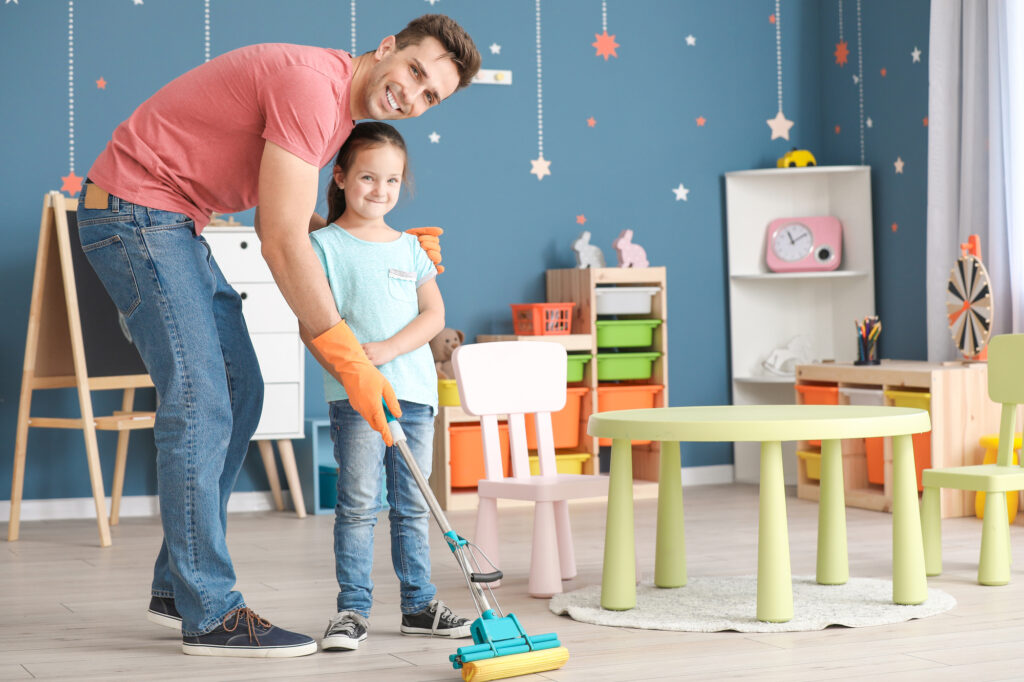

The effort to keep order is considerable and increases with the size of the house. Fortunately, this is where you can enlist the help of professionals who know how to tackle the problem most effectively and have the patience to take care of every nook and cranny of your home. That's the case with the staff at Sophie's Cleaners. If you live in the canton of Bern and are looking for a reliable cleaning company, then just take Kontakt mit uns auf! Wir erklären Ihnen gerne, wie wir Ihnen behilflich sein können.

What is eco-cleaning? Ecology is increasingly entering the various spheres of life, including household cleaning. Perhaps you have heard of the term eco-cleaning before.
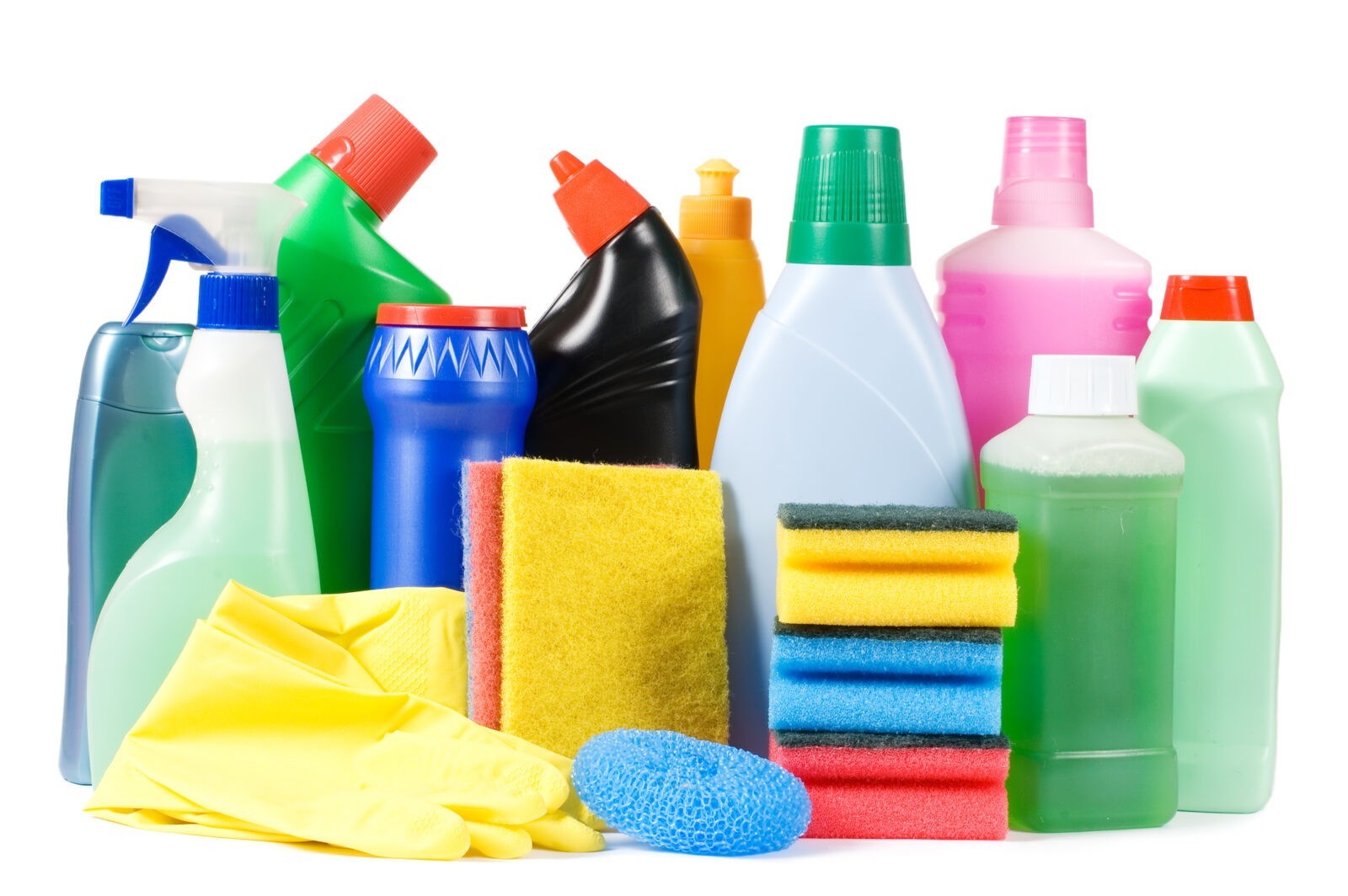
In order to make dirty surfaces clean again, people resort to various means, which are touted by manufacturers in their commercials. It is assured that
Opening hours:
Monday to Friday:
Saturday:
7:00 – 18:00
8:00 – 16:00
Monday to Friday:
8:00 – 18:00
Saturday:
8:00 – 16:00
Email: info@sophiesreinigungen.ch
Phone: 079 628 58 88 | GERMAN | ENGLISH